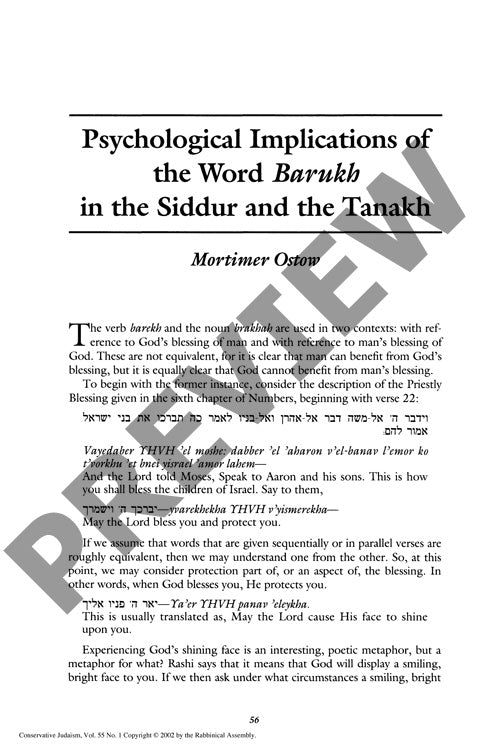Psychological Implications of the Word B
Couldn't load pickup availability
The Hebrew word for blessing (*barekh*) reveals a profound psychological dynamic at the heart of Jewish religious experience - one that mirrors the intimate bonds of parent and child. Through exegetical analysis of key passages, particularly the Priestly Blessing in Numbers 6:22-27, distinctive patterns emerge in how blessing functions bidirectionally between God and humanity. Textual analysis of Hebrew sources from the Siddur and Tanakh, supported by rabbinic commentaries and psychological interpretation, reveals the multifaceted nature of these sacred exchanges. When God blesses humanity, the act encompasses protection, divine favor (represented by God's "shining face"), graciousness, mercy, and peace, while simultaneously establishing a symbolic parent-child relationship through the conferring of God's name. In contrast, human blessing of God manifests as expressions of gratitude and praise, creating reciprocal love analogous to maternal-infant bonding patterns. This bidirectional nature of blessing establishes and reinforces the fundamental attachment between God and Israel, with the parent-child metaphor serving as the primary psychological framework. The research demonstrates that blessing represents a dialogue of love that creates religious intensity and cements the unbreakable bond between the divine and human realms, with liturgical reciprocity reflecting deep psychological attachment patterns.

More Information
-
Physical Description
-
Publication Information
Published 2002
ISBN
-
Publication Credits
Mortimer Ostow

